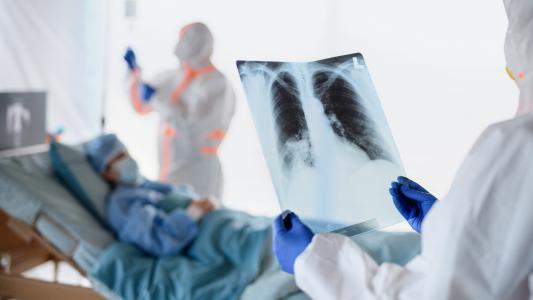GlaxoSmithKline (GSK) and Sanofi — two of the biggest pharmaceutical companies in the world — have announced plans to collaborate on a potential coronavirus vaccine.
“By combining our science and our technologies, we believe we can help accelerate the global effort to develop a vaccine to protect as many people as possible from COVID-19,” GSK CEO Emma Walmsley said in a press release.
The pairing of GSK and Sanofi is akin to the creation of an incredible vaccine supergroup.
First, each of the companies is incredibly successful in its own right. GSK is the biggest vaccine manufacturer in the world, by revenue, with 16 vaccine manufacturing sites across the globe. Sanofi, meanwhile, is the fourth biggest with 15 sites.
Second, like any successful supergroup, they will each have something unique to offer to the collaboration.
Sanofi’s contribution to the development of their potential coronavirus vaccine will be the S-protein COVID-19 antigen, which it developed using its recombinant DNA technology.
This antigen is an exact genetic match of the spike protein the coronavirus uses to infect human cells, and it alone could form the basis for a potential coronavirus vaccine.
But GSK’s contribution to the joint venture — its pandemic adjuvant technology — could dramatically boost the antigen’s impact.
An adjuvant is a substance that increases the immune system’s response to an antigen — add an adjuvant to a vaccine, and you can decrease the dosage needed for the vaccine to be effective.
GSK has a track record of success in developing adjuvants for vaccines — the one it manufactured for 2009’s H1N1 flu pandemic allowed the company to quadruple the number of vaccine doses it was able to produce.
GSK and Sanofi hope to launch Phase I clinical trials of their potential coronavirus vaccine in the second half of 2020.
If all goes well with the trials and regulatory approval for their potential coronavirus vaccine, the pair could begin distributing it in the second half of 2021 — and thanks to their massive size, they’re particularly well equipped to produce a coronavirus vaccine in the quantities needed to address the COVID-19 pandemic.
“Both companies bring significant manufacturing capacity,” Walmsley told reporters on April 14. “While we have a lot of work to do, given that this is in an early stage of development, we believe that if we’re successful, we’ll be able to make hundreds of millions of doses annually by the end of next year.”
